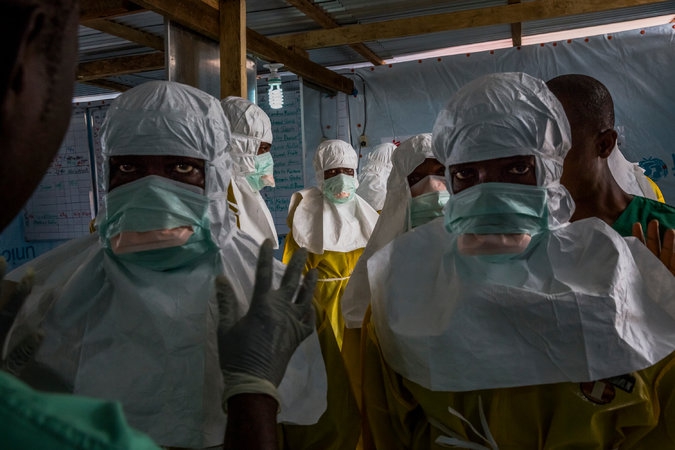 Health workers prepared to enter a high-risk ward at an Ebola treatment center in Monrovia, Liberia, run by Doctors Without Borders. Credit Daniel Berehulak for The New York Times[/caption]
Health workers prepared to enter a high-risk ward at an Ebola treatment center in Monrovia, Liberia, run by Doctors Without Borders. Credit Daniel Berehulak for The New York Times[/caption]A UN health official says at least 600 million dollars in aid would be required to combat the deadly Ebola outbreak ravaging West Africa.
David Nabarro, a senior UN coordinator for Ebola, made the remarks in a�press conference on Wednesday.
The figure is higher than an estimate of $490 million by the World Health Organization (WHO) last week.
Nabarro said moving supplies and staff around the region has been made difficult as a result of air travel restrictions imposed by some countries. He said the UN is now encouraging governments to �commit to the movement of people and planes and at the same time deal with anxieties about the possibility of infection.�
Margaret Chan, the general-director of the WHO, also told the conference that the Ebola epidemic is �the longest, most severe, and most complex� seen in the nearly 40-year history of the disease.
The WHO said up to 35,000 cases have been reported in Guinea, Sierra Leone and Liberia. The group confirmed that more than 1,900 people have so far succumbed to the deadly disease in West Africa.
Officials say the rate of the infection has rapidly accelerated, with Guinea uncovering Ebola in new parts of the country. Almost 400 deaths have occurred within the past week.
Ebola is a form of hemorrhagic fever whose symptoms are diarrhea, vomiting and bleeding. The virus spreads through direct contact with infected blood, feces or sweat. It can also be spread through sexual contact or the unprotected handling of contaminated corpses.
Ebola was first discovered in the Democratic Republic of the Congo in 1976 in an outbreak that killed 280 people. No patented vaccines or treatments have been administered for the disease yet.
By Press TV
The Iran Project is not responsible for the content of quoted articles.











